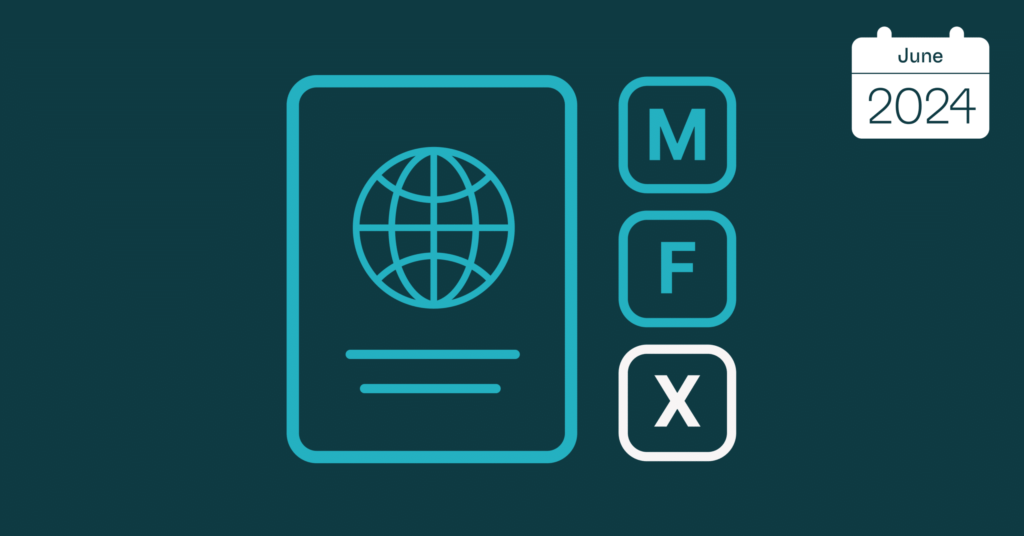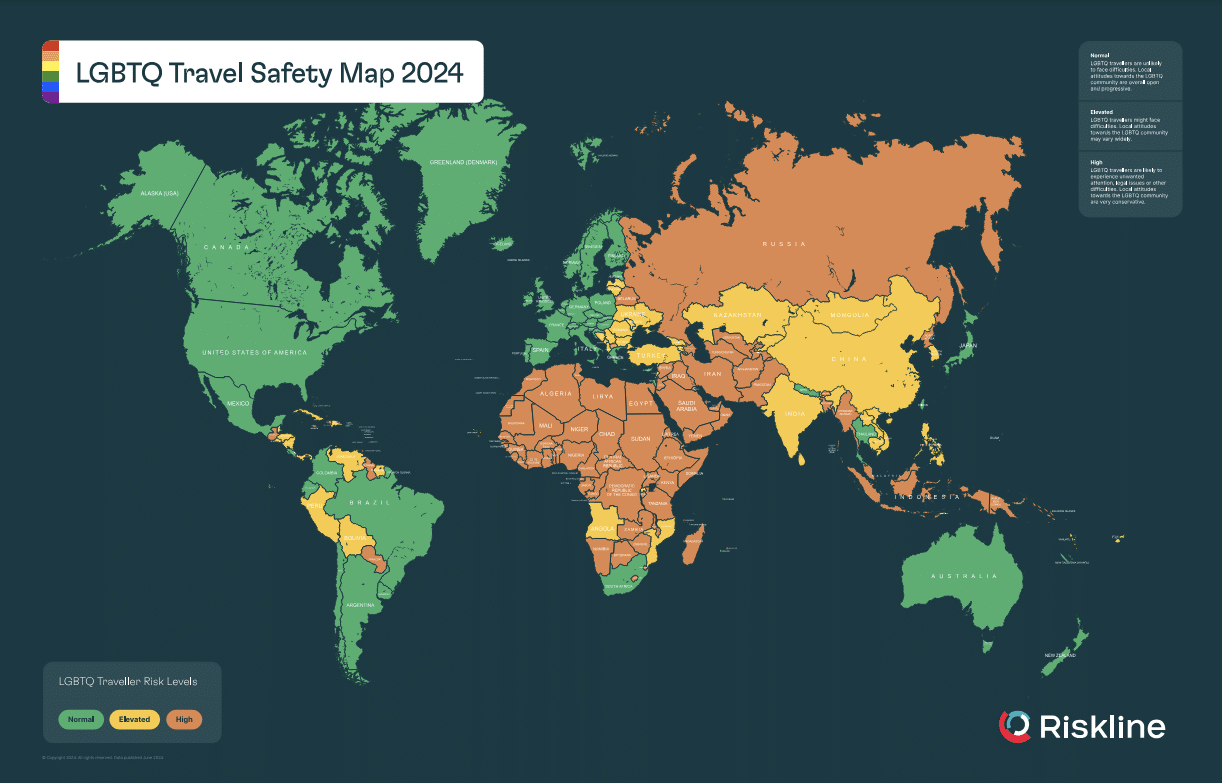By Claudia Gualdi, Lorena Peña, Lorenzo Trevisan
Happy Pride Month!
Many capital cities worldwide are preparing to host crowded and colourful Pride parades to celebrate 2024 Pride Month, which takes place every year in June to commemorate the history, achievements, and ongoing fights for the rights and equality of the LGBTQ community. The most famous are hosted in New York, São Paulo, Madrid, San Francisco, and Toronto – just to mention a few cities – from June to September. Smaller marches, festivals, performances, social events, and press conferences are also organised annually in smaller cities.
While LGBTQ events attract millions of attendees to many countries, others – notably Saudi Arabia, Iran, Russia, Turkey and Uganda – have been limiting or even banning Pride parades and events, issuing laws against LGBTQ propaganda and gatherings. Despite these challenges, Pride parades attract diverse individuals, opposing state-sanctioned homophobia, transphobia, and discrimination, and raising public awareness.
Riskline celebrates Pride Month by wishing the global LGBTQ community a happy Pride and launching an updated version of Riskline’s LGBTQ travelers data.
LGBTQ worldwide travel guide
The LGBTQ (Lesbian, Gay, Bisexual, Transgender and Queer) travel market has grown enormously in recent years, becoming one of the most lucrative segments of the travel industry. However, LGBTQ travellers still face many challenges when travelling to several destinations.
Our global overview of LGBTQ travel
Number of countries and level of concern
- 74 countries with Normal concern
- 65 – Elevated concern
- 94 – High concern
Social acceptance
- In 55 countries LGBTQ people and events are widely accepted
- In 78 countries they are somewhat accepted
- In 100 countries they are not accepted
Only 36 countries reportedly accept a passport X (gender-neutral) for entry, among which two (Pakistan and Bangladesh) are High-concern destinations for LGBTQ travellers. The existence of a legal framework doesn’t guarantee its proper application. Additionally, the safety perception for LGBTQ travelers often contrasts with the experiences of the local LGBTQ population.
EURO
ILGA Europe’s latest Rainbow Map tells us that the way to equality and justice for LGBTQ people across Europe is far from being reached. Hate speech and violence are sparking in several European countries where human rights remain poor due to a lack of legal protection. LGBTQ travelers are unlikely to face legal issues in Europe due to good social acceptance. However, homophobia, social conservatism, and discrimination at venues and hotels remain common. Belgium, Cyprus, Iceland, Norway, and Portugal have banned conversion practices. Meanwhile, same-sex couple rights are threatened in Italy. Other destinations have seen improvements in recent times. Greece, Germany, Iceland, Estonia, and Liechtenstein all made some of the biggest progress in terms of legislation in the past years.
SSA
Amnesty International points out that the situation of LGBTQ communities in Africa is quite serious and has continued to worsen in recent years. In 2023, there was an increase in anti-LGBTQ laws in several countries, most notably in Uganda, where same-sex relationships were already illegal. Now, the Anti-Homosexuality Act hits lesbian, gay, bisexual, transgender and queer people with the death penalty for ‘aggravated homosexuality’. Mauritania, Nigeria, and Somalia are among African countries where Sharia law mandates the death penalty for homosexual activities.
In addition to these, countless other countries criminalise homosexuals with prison sentences. Fortunately, in 22 African countries being gay is legal. South Africa is the first African country to constitutionally ban discrimination based on sexual orientation. The LGBTQ social scene is vibrant, with many activist groups and annual Pride events in cities like Cape Town and Johannesburg.
MENA
The Middle East and North Africa are among the areas with the most restrictive laws for LGBTQ people. Of the 11 UN member states that provide for the death penalty for consensual same-sex relations, five are in the Middle East (Iran, Saudi Arabia, Yemen, Qatar and the United Arab Emirates). Even in countries where same-sex relationships are not criminalized, freedom of expression and protection from discrimination are often lacking. LGBTQ travellers must also exercise a high degree of caution online.
Human Rights Watch noted that in addition to traditional methods of street harassment, arrests and repression, authorities in some countries, such as Egypt, Iraq, Jordan, Lebanon and Tunisia, have entrapped LGBTQ people on social media and dating apps by creating fake profiles. Israel is one of the most developed Middle Eastern countries for LGBTQ rights. Israeli law recognizes same-sex marriages celebrated abroad. Tel Aviv Pride is the region’s most significant LGBTQ event.
APAC
In the Asia Pacific region, there have been important victories for LGBTQ rights in recent years. In 2023, Singapore decriminalized consensual same-sex acts between men. Taiwan granted adoption rights to LGBTQ couples. Nepal registered same-sex marriages. Australia, New Zealand, and Thailand have strong LGBTQ rights laws. They protect against hate crimes targeting LGBTQ people.
In Malaysia, Afghanistan, the Maldives, Indonesia, and Uzbekistan, LGBTQ rights face ongoing violations. Nonetheless, LGBTQ-friendly resorts are available in tourist hubs and islands of Indonesia and the Maldives, according to Riskline’s LGBTQ Travellers Reports.
AMER
Rights for LGBTQ people have gained terrain as most countries in the region. But, it’s clear, there is still a long road ahead, considering violence towards LGBTQ individuals is still frequent in the region. The United States (US) and Canada are among the friendliest destinations for LGBTQ worldwide with overall progressive protection laws, despite in recent years the United States has witnessed more frequent attempts to limit freedoms and rights for LGBTQ in several states. According to Equaldex, among the most progressive countries are Uruguay, Chile, Brazil, Argentina, Colombia, Mexico, Costa Rica and Cuba.
Also, 13 countries in the Americas recognise same-sex marriage. In these countries, most main cities are open and have a vibrant LGBTQ community, where venues and activities are available too for LGBTQ travellers arriving. Especially, such as the São Paulo LGBT+ Pride Parade, is South America’s largest pride parade. In the Caribbean region, some islands have embraced LGBTQ-friendly policies, attracting travelers annually. While others still criminalize male homosexuality, leading to stigma against LGBTQ individuals. This is the case of Grenada, Saint Lucia, Jamaica and Saint Vincent and the Grenadines. In 2024, Dominica legalized homosexuality, marking a significant step toward greater acceptance and perception of queer individuals on the island.
How Riskline helps LGBTQ travellers
Addressing LGBTQ travellers’ needs before and during a trip is crucial to keep them informed. To help LGBTQ travellers travel even more safely, Riskline is launching upgraded LGBTQ data for 233 destinations.
The enhanced data contain relevant and verifiable information on the security and rights situation for LGBTQ travellers:
- An overview of the legal framework of LGBTQ rights in the country
- An overview of the social attitudes towards LGBTQ persons and events in the country
- Information about what to expect while travelling to a destination, such as how to behave and where to find LGBTQ-friendly areas
- Safety Assessment (Level of concern on a 3-scale level)
- Safety Advice (depending on the Level of concern assessed)
We hope that along with the LGBTQ travel safety map, this travel season will ensure safety for all travelers.

